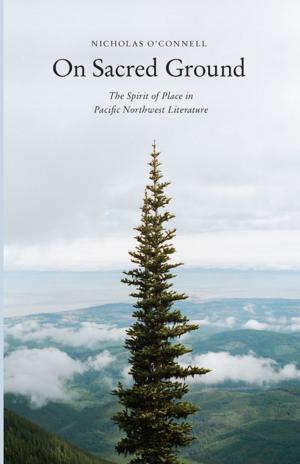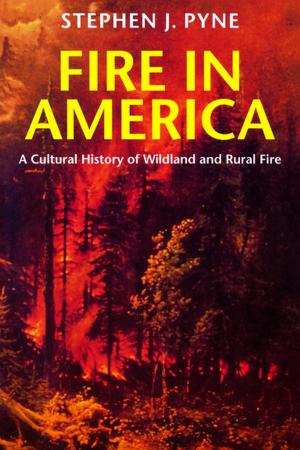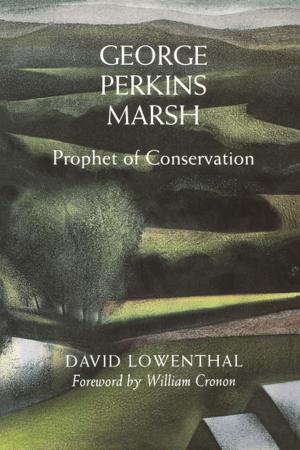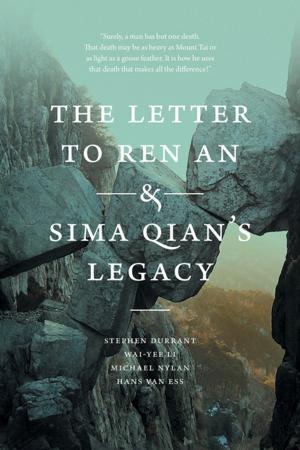White Grizzly Bear's Legacy
Learning to Be Indian
Nonfiction, Social & Cultural Studies, Social Science, Cultural Studies, Native American Studies, History, Americas, Native American| Author: | Lawney L. Reyes | ISBN: | 9780295803357 |
| Publisher: | University of Washington Press | Publication: | January 1, 2012 |
| Imprint: | University of Washington Press | Language: | English |
| Author: | Lawney L. Reyes |
| ISBN: | 9780295803357 |
| Publisher: | University of Washington Press |
| Publication: | January 1, 2012 |
| Imprint: | University of Washington Press |
| Language: | English |
"I walked across the highway and stood on the bank overlooking Lake Roosevelt. My attention was directed to the area where Kettle Falls once flowed. As I stood there the wind came. As I listened I imagined that it talked to me. It seemed that it was telling me of how things once were. I began to think of friends and relatives who were no longer living. They began to appear before me, perched on the large rocks, fishing for the great salmon."
In his distinctive voice, Lawney Reyes, grandson of Pic Ah Kelowna or White Grizzly Bear of the Sin Aikst, relates the history of his family and his people. The Sin Aikst are now known as the Lakes tribe, absorbed into the Colville Confederated Tribes of eastern Washington. And where Kettle Falls once flowed and the Sin Aikst once fished are places that exist now only in memory, flooded when the Grand Coulee Dam was completed in 1942. Reyes uses personal and family history to explore the larger forces that have confronted all Native Americans: displacement, acculturation, and the potent force of self-renewal.
The son of a Filipino immigrant and a mother who traced her ancestry to the earliest known leaders of the Sin Aikst, Reyes paints a vivid picture of his early life in the Indian village of Inchelium, destroyed by the building of the dam. Reyes describes the loss of homeland and traditional ways of life, the scarcities that followed, and the experiences of a court-ordered Indian boarding school in Oregon. These well-known facts of loss and injustice take on a compelling dimension in Reyes�s blend of history and autobiography, brought to life by the vivid images and personalities he describes.
Despite the loss of heritage beneath the waters of the Columbia River and the flood of white acculturation, Reyes and his younger brother, the late Native American leader Bernie Whitebear, were able to fashion rich lives in a changed world, lives that honor the past while engaging with the present.
"I walked across the highway and stood on the bank overlooking Lake Roosevelt. My attention was directed to the area where Kettle Falls once flowed. As I stood there the wind came. As I listened I imagined that it talked to me. It seemed that it was telling me of how things once were. I began to think of friends and relatives who were no longer living. They began to appear before me, perched on the large rocks, fishing for the great salmon."
In his distinctive voice, Lawney Reyes, grandson of Pic Ah Kelowna or White Grizzly Bear of the Sin Aikst, relates the history of his family and his people. The Sin Aikst are now known as the Lakes tribe, absorbed into the Colville Confederated Tribes of eastern Washington. And where Kettle Falls once flowed and the Sin Aikst once fished are places that exist now only in memory, flooded when the Grand Coulee Dam was completed in 1942. Reyes uses personal and family history to explore the larger forces that have confronted all Native Americans: displacement, acculturation, and the potent force of self-renewal.
The son of a Filipino immigrant and a mother who traced her ancestry to the earliest known leaders of the Sin Aikst, Reyes paints a vivid picture of his early life in the Indian village of Inchelium, destroyed by the building of the dam. Reyes describes the loss of homeland and traditional ways of life, the scarcities that followed, and the experiences of a court-ordered Indian boarding school in Oregon. These well-known facts of loss and injustice take on a compelling dimension in Reyes�s blend of history and autobiography, brought to life by the vivid images and personalities he describes.
Despite the loss of heritage beneath the waters of the Columbia River and the flood of white acculturation, Reyes and his younger brother, the late Native American leader Bernie Whitebear, were able to fashion rich lives in a changed world, lives that honor the past while engaging with the present.















